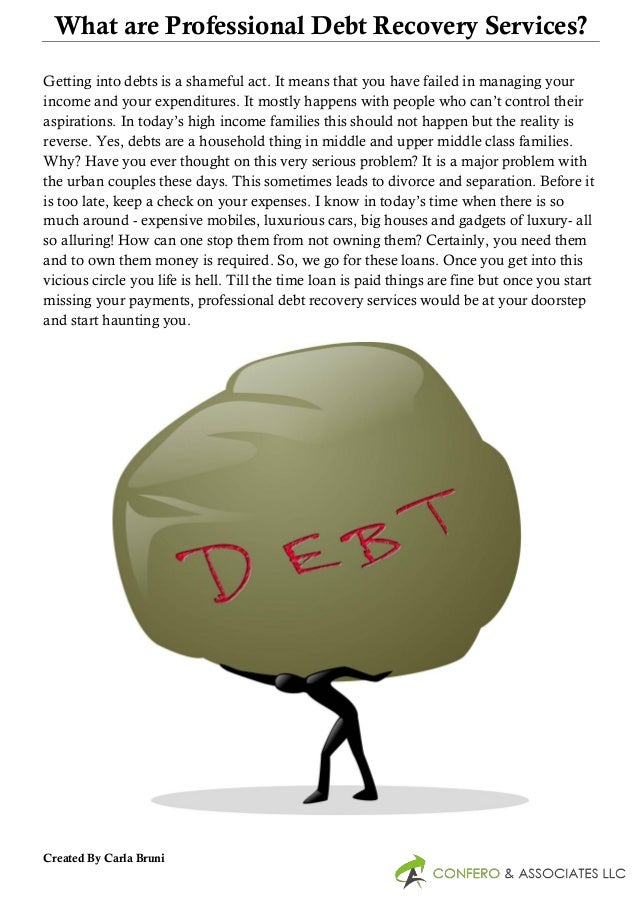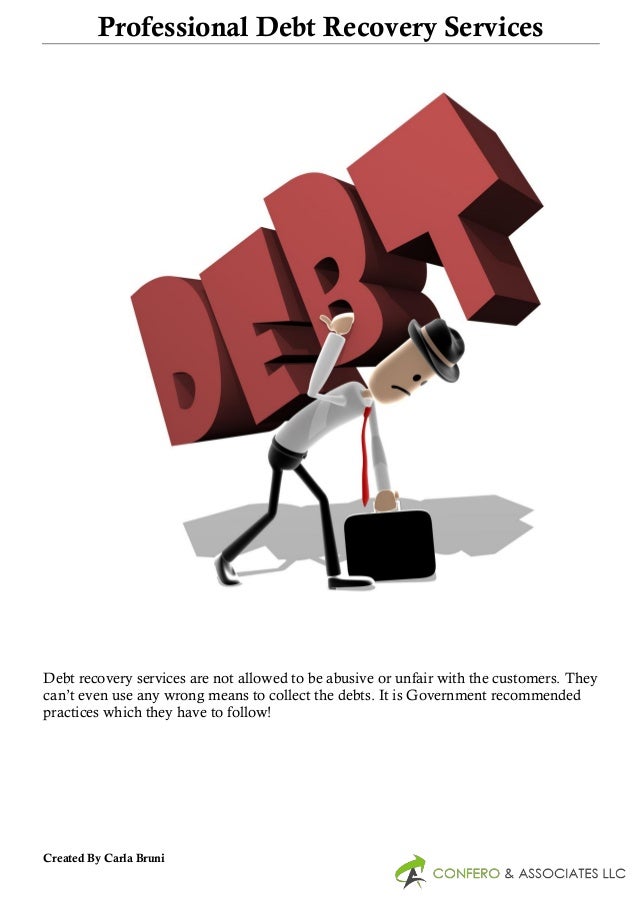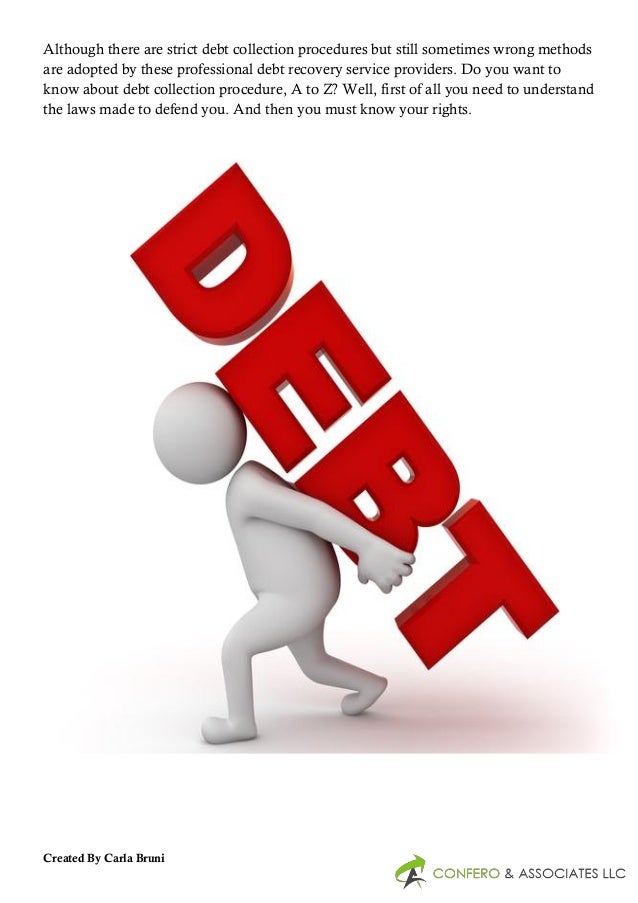Debt settlement, also known as debt arbitration, debt negotiation or credit settlement, is an approach to debt reduction in which the debtor and creditor agree on a reduced balance that will be regarded as payment in full.
In the U.K. you can appoint an Arbiter or legal entity to negotiate with the creditors. Creditors often accept reduced balances in a final payment and this is called full and final settlement but with debt settlement the reduced amount can be spread over an agreed term.
Debt settlement is often confused with debt consolidation or debt management. In debt consolidation and debt management, the consumer makes monthly payments to the debt consolidator, who takes a fee and passes the rest on to the creditors; this way, creditors continue to receive payments each month. In debt settlement, the consumer makes monthly payments, out of which the debt settlement company takes its fees for the legal work or negotiation and payments are paid to the creditor. Unlike U.K. debt management there are no monthly management fees, the debt settlement company may get the creditor to accept a settlement of 40 pence in the pound, but the client pays 50 pence in the pound. The debt settlement company benefit from the extra 10 pence in this case.
In the U.K. creditors such as banks, credit card, loan companies and other creditors are already writing off huge amounts of debt. Most creditors are open to negotiations and are willing to accept reductions of 50% or more. Debt settlement allows the public to spread payments out over a set term - instead of having to pay a lump sum in one go which is the case with Full and Final Settlement.
Many people are taking advantage of Debt Settlement instead of conventional Debt Management because they have not seen debt management offer the benefits sold to them.
U.K. debt settlement is not to be confused with full and final settlement where debt management companies have been known to hold on to client funds in which case the creditors get nothing until they decide to settle. Furthermore, the debt management company usually instructs the consumer not to make any payments to creditors. The intended effect is to scare creditors into settling the debt for less than the full amount. Typically, however, creditors simply begin collection procedures, which can include filing suit against the consumer in court. As long as consumers continue to make minimum monthly payments, creditors will not negotiate a reduced balance. However, when payments stop, balances continue to grow because of late fees and ongoing interest. This practice of holding client funds is regarded as unethical in the U.S. and U.K.
U.S. debt settlement differs slightly. There are several indicators that few consumers actually have their debt eliminated by full and final settlement. A survey of U.S. debt settlement companies found that 34.4% of enrollees had 75 percent or more of their debt settled within three years. Data released by the Colorado Attorney General showed that only 11.35 percent of consumers who had enrolled more than three years earlier had all of their debt settled. And when asked to show that most of their customers are better off after debt settlement, industry leaders said that would be an "unrealistic measure."
Consumers can arrange their own settlements by using advice found on web sites, hire a lawyer to act for them, or use debt settlement companies. In a New York Times article Cyndi Geerdes, an associate professor at the University of Illinois law school, states "Done correctly, (debt settlement) can absolutely help people". However, stopping payments to creditors as part of a debt settlement plan can reduce a consumer's credit score from 65 to 125 points, with higher impacts on those who were current on their payments prior to enrolling in the program. And missed payments can remain on a consumer's credit report for seven years even after a debt is settled.
Some settlement companies may charge a large fee up front, which ignores a rule from the Federal Trade Commission.
Or they take a monthly fee from customer bank accounts for their service, possibly reducing the incentive to settle with creditors quickly. One expert advises consumers to look for companies that charge only after a settlement is made, and charge about 20 percent of the amount by which the outstanding balance is reduced. Other experts say debt settlement is a flawed model altogether and should be avoided.

History
As a concept, lenders have been practicing debt settlement for thousands of years. However, the business of debt settlement became prominent in America during the late 1980s and early 1990s when bank deregulation, which loosened consumer lending practices, followed by an economic recession placed consumers in financial hardships.
With charge-offs (debts written-off by banks) increasing, banks established debt settlement departments staffed with personnel who were authorized to negotiate with defaulted cardholders to reduce the outstanding balances in hopes to recover funds that would otherwise be lost if the cardholder filed for Chapter 7 bankruptcy. Typical settlements ranged between 25% and 65% of the outstanding balance.
Alongside the unprecedented spike in personal debt loads, there has been another rather significant (even if criminally under reported) change - the 2005 passage of legislation that dramatically worsened the chances for average Americans to claim Chapter 7 bankruptcy protection. As things stand, should anyone filing for bankruptcy fail to meet the Internal Revenue Service regulated 'means test', they would instead be shelved into the Chapter 13 debt restructuring plan. Essentially, Chapter 13 bankruptcies simply tell borrowers that they must pay back some or all of their debts to all unsecured lenders. Repayments under Chapter 13 can range from 1% to 100% of the amounts owed to unsecured creditors, based on the ability of the debtor to pay. Repayment periods are 3 years (for those who earn below the median income) or 5 years (for those above), under court mandated budgets that follow IRS guidelines, and the penalties for failure are more severe.
Professional Debt Recovery Services Video
Process
Debt settlement is the process of negotiating with creditors to reduce overall debts in exchange for a lump sum payment. A successful settlement occurs when the creditor agrees to forgive a percentage of total account balance. Normally, only unsecured debts not secured by real assets like homes or autos can be settled. Unsecured debts include medical bills and credit card debts - not student loans, auto financing or mortgages. For the debtor, this makes obvious sense, they avoid the stigma and intrusive court-mandated controls of bankruptcy while still lowering, sometimes by more than 50%, their debt balances. Whereas, for the creditor, they regain trust that the borrower intends to pay back what he can of the loans and not file bankruptcy (in which case, the creditor risks losing all monies owed).
Negotiating with a collection agency or junk debt buyer is somewhat similar to negotiating with a credit card company or other original creditor. However, many collection agencies (or junk debt buyers) will agree to take less of the owed amount than the original creditor, because the junk debt buyer has purchased the debt for a fraction of the original balance. As a part of the settlement, the consumer can request that collection is removed from the credit report, which is generally not the case with the original creditor. Even if the removal of the collection account from the consumer credit report has been successfully achieved as a condition of settlement during negotiations, the negative marks from the original credit card company will still remain, according to Maxine Sweet, a spokeswoman for credit reporting agency Experian.

Professional debt settlement
Depending on the country, different laws regulate professional debt settlement companies. In the United States, debt relief companies are required to provide information in advance of a consumer signing up for the services, including the cost and the terms. A legitimate company will use a Federal Deposit Insurance Corporation-insured trust account. Once enough funds are built up the negotiation process can begin with each creditor individually. Trust accounts, also known as "special purpose accounts," are often held by a bank, and managed by a bank agent (who charges a monthly maintenance fee). Accounts can also be held by creditors, or may be sold to collections agency for an average of $0.15 on the dollar, in which case debt can still be negotiated.
A consumer makes monthly payments to the debt settlement company, or to the bank (or bank agent) who holds the "trust" account. A portion of each payment is taken as fees for the debt settlement company, and the rest is put into the trust account. The consumer is told not to pay anything to the creditors. The debt settlement company's fees are usually specified in the enrollment contract, and may range from 10% to 75% of the total amount of debt to be settled. FTC regulations effective October 27, 2010 restrict debt settlement companies from collecting any fees from a debtor client for services until settlement with the creditor has been reached and at least one payment made.
Advantages
Settlement companies generally package their settlements into a larger bulk settlement with the creditor for 35% - 50% of the existing balances. The debt settlement companies typically have built up a relationship during their normal business practices with the credit card companies and can come to a settlement agreement quicker and at a more favorable rate than a debtor acting on their own. With the current economic crisis, more and more credit card companies may be willing to settle existing credit card debts rather than add to their already large written off bad debt.
Disadvantages
Debt settlement companies generally take a percentage of the savings of the forgiven debt as the fee for their services. It does take a team of people to work on the accounts, and of course, the time. Some people do their own taxes, some people don't have the time or know how, same thing. The drop out rate of debt settlement programs is high if a monthly plan is greater than 36 months at 50% and consumers who find themselves in these sorts of debt situations tend to have trouble sticking to a structured payment program for an extended period of time. Plans 36 months or less have a completion rate of over 85% Good settlement companies will arrange monthly update calls, establish a plan where you could miss a payment or two (life happens) or finish the plan six months earlier if you are consistent with all monthly payments. Credit card accounts typically go into collection after they are charged off, typically 180 days after the last payment on the account. The debt settlement companies may not handle calls from the credit card companies, nor the collection agencies.Calls will slow down as the settlement company makes contact with the creditors. Legal action can be taken against the creditor if they violate the FDCP act. A good settlement company works with their clients to protect them. Debtors can be sued by creditors seeking to recover debts and interest. This can be avoided by using companies with good standings and practices that protect consumers from these procedures.

Do-it-yourself debt settlement
It is possible for a consumer to imitate the methods of professional debt settlement companies and many people report success in negotiating a debt settlement for themselves. Initiation of negotiations can begin by calling the customer service department of the credit card company. In general, the credit card company will only deal with a consumer when the consumer is behind on payments but capable of making a lump sum payment. A payment plan is not an option; the credit card company will demand that the consumer make a lump sum payment of the settlement amount.
Advantages
By negotiating debts on their own, debtors are able to save in fees that would otherwise be paid to a debt settlement company or an attorney. This option also gives the debtor more control over the process which may, or may not, be a motivational factor to continue successfully completing the process.
Disadvantages
While the do-it-yourself option offers the debtor more control and reduced fees, there are negatives generally associated with this option. Creditors have their own policies regarding debt settlement and certain creditors will not settle directly with consumers. Additionally, consumers may face less advantageous settlement rates on their own, as opposed to debt settlement companies that have relationships with creditors and can often package bulk settlements. Consumers may face difficulty getting through to decision makers or long delays in any negotiations or paperwork processing with the creditors. Furthermore, every creditor has different processes and procedures in how they determine settlement offers and terms. Not knowing those can leave a consumer in the dark. Settlement Companies have a Customer service department to assist consumers with any questions or difficulties that arise during their program. This support can be particularly valuable, especially in cases where creditors become aggressive. If an account were to escalate to legal status, a consumer settling on their own would need to seek out a third party for help. Unfamiliarity of the settlement process can be intimidating and mistakes can be made. You will need to beware of fine print and carefully review any correspondence, proposed settlement or agreement with a creditor. Settlement Agreements should be reviewed very carefully, perhaps by a third party, to make sure that all the terms are those that are agreed upon. Settling one's debt can be an emotionally draining and difficult process.

Creditor's incentives
The creditor's primary incentive is to recover funds that would otherwise be lost if the debtor filed for bankruptcy. The other key incentive is that the creditor can often recover more funds than through other collection methods. Collection agencies and collection attorneys charge commissions as high as 40% on recovered funds. Bad debt purchasers buy portfolios of delinquent debts from creditors who give up on internal collection efforts and these bad debt purchasers pay between 1 and 12 cents on the dollar, depending on the age of the debt, with the oldest debts the cheapest. Collection calls and lawsuits sometimes push debtors into bankruptcy, in which case the creditor often recovers no funds.

Common objections
Damages credit - Credit reports will show evidence of debt settlements and the associated FICO scores will be lowered temporarily as a result. However, if a "paid in full" letter is obtained from the creditor, the debtor's credit report should show no sign of a debt settlement. Additionally, as debtors settle their accounts the score starts to go back up again. Some Debt Settlement companies offer Credit Repair in their programs in order to erase some of the negative remarks on credit reports.
Potential for lawsuits - Though few creditors wish to push borrowers toward bankruptcy, (and the potential of governmental protection against all debts),there's always the possibility of a lawsuit whenever debts lay unpaid. In the debt settlement process the debtor's accounts remain in default. While the debts are still in default the creditor or its assignee can still file a lawsuit against a debtor. Most creditors and debt collectors want a lump sum payment to settle for less than the full debt. Although a debtor may make monthly payments to the debt settlement company, the amount is too small to successfully negotiate a settlement until after the debtor has made several months' worth of payments.
Eligibility of debts - In addition, the specific debts of the borrowers themselves affect the success of negotiations. Tax liens and domestic judgments, for reasons that should be clear, remain unaffected by attempts at settlement. Student loans, even those not federally subsidized, have been granted special powers by recent legislation to attach bank accounts without possibility of Chapter 7 bankruptcy protection. Also, some individual creditors, including Discover Card, for example, tend to have an aggressive resistance against negotiations.
Tax consequences - Another common objection to debt settlement is that debtors whose debts are partially canceled outside the bankruptcy system will need to report the canceled portion of the debt as taxable income. (IRS Publication Form 982) The Internal Revenue Service (IRS) considers any amount of forgiven debt as taxable income. The forgiving creditor must provide the taxpayer with a 1099-C tax form for amounts $600 or greater. This form will list the amount of forgiven debt and interest in Box 2. Taxpayers with portions of personal loans forgiven may not subtract the interest reported in Box 3 from the amount of reportable income on this form.
However, the IRS does not require taxpayers to report forgiven debt if the tax payer was insolvent at the time the creditor forgave the debt. Being insolvent means that the amount of a debtor's debts are greater than his/her assets (how much money and property the debtor owns). However, the IRS adds that "you cannot exclude any amount of canceled debt that is more than the amount by which you are insolvent."
For example, if a taxpayer is $10,000 in debt and owns $3,000 in assets, he/she cannot exclude more than $7,000 of forgiven debt from his/her income tax. Any forgiven debt over $7,000 that year must be reported as taxable income.

Criticism
In May 2009, the New York Attorney General issued subpoenas to fourteen "debt settlement" companies, looking for violations of New York law. On May 19, 2009, the New York Attorney General filed suit against two "debt settlement" firms and their affiliates, alleging violations related to fraudulent business practices and false advertising.
A March 2010 CBS Early Show story on the debt settlement industry cast a harsh light on major debt settlement firm Credit Solutions of America's business practices, and provided consumer advice for debt settlement counseling.
Better Business Bureau rating
The Better Business Bureau has adopted an automatic downgrading policy for all debt settlement companies. In a written statement, the Council of Better Business Bureaus stated, "Debt negotiation/settlement businesses are downgraded in the BBB rating system based on BBB concerns with the debt negotiation/settlement industry. The FTC held a workshop on debt negotiation/settlement last fall, and similar concerns were expressed as to how the industry operates and the likelihood that debt negotiation/settlement benefits a significant number of consumers."
The Association of Settlement Companies (TASC), the professional association for the debt settlement industry, warned in a written statement that "under the BBB's new rating system, it is virtually impossible for a debt settlement company to be rated anything other than a 'D' or 'F',". In a February letter TASC sent to the National Council of Better Business Bureaus, the organization alleged that "there are critical flaws in the BBB's consumer grading system as it applies to settlement firms." The letter expressed concern that all settlement companies will be given poor ratings, regardless of the number of consumer complaints, how those complaints have been resolved, or the business practices of the settlement firm under review. TASC says the dispute stems from the fact that the BBB does not consider debt settlement a viable option for consumers who cannot afford to pay back their debts and want professional help to negotiate lower payments.
In December 2010, the head of the Los Angeles Better Business Bureau resigned following a news report that alleged the chapter would award paying BBB members better ratings than other companies. William Mitchell, the CEO who introduced a controversial letter grade system for L.A. businesses, has been accused of only giving A+ ratings to companies that pay BBB membership, according to a report from ABC News. Many business owners believed there was something amiss about the ratings system and set out to prove the BBB was acting improperly. Mitchell, a former board member of SpringBoard Credit Counseling, had long been a vocal opponent of legitimate debt settlement services, saying they were only designed to rip off consumers.
Are You Looking for Products
Here some products related to "Debt Settlement".
Beat Debt Collectors at T..
Sued for Debt - What If (..
Debt Relief Success: How ..
Allen Carr's Easy Way to ..
Get these at Amazon.com* amzn.to is official short URL for Amazon.com, provided by Bitly
Source of the article : here






EmoticonEmoticon